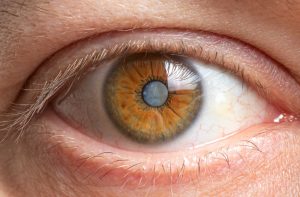The journey towards robust health management for those with diabetes entails more than just keeping blood sugar levels in check. One vital, yet often overlooked aspect is eye care. Diabetes can adversely impact eye health, leading to a range of complications that, if not addressed timely, could significantly impair vision. Thus, people with diabetes are urged to be proactive in safeguarding their sight—an invaluable sense that enriches life’s experiences.
Delving into the Diabetes-Eye Health Connection
Contents
- 1 Delving into the Diabetes-Eye Health Connection
- 2 Strategies to Detect and Diagnose Early
- 3 Blueprint for Eye Health Management in Diabetes
- 4 Therapeutic Interventions for Diabetic Eye Ailments
- 5 Creating a Diabetes Care Routine That Shields Your Eyes
- 6 A Collaborative Approach to Managing Diabetic Vision Concerns

At the core of diabetes management lies the prevention of complications, and the eyes demand special attention. Persistently elevated blood sugar levels have the propensity to damage the tiny vessels within the eye’s retina, subsequently giving rise to conditions such as diabetic retinopathy—the leading cause of blindness in adults. Beyond retinopathy, those with diabetes may face an increased risk of earlier-than-normal onset of eye conditions like cataracts and glaucoma—both of which can cloud vision and, without intervention, potentially steal it away.
It’s paramount to become acquainted with various eye-related complications tied to diabetes. Ocular issues such as cataracts present with a clouding effect on the lens of the eye, while individuals experiencing glaucoma encounter increased intraocular pressure, which can harm the optic nerve over time. Recognizing how each of these conditions manifests and the symptoms they bring forth is crucial. In doing so, one can stay vigilant and mitigate the risk of overlooking early signs of trouble that may later escalate.
Strategies to Detect and Diagnose Early

The adage, “prevention is better than cure,” holds particularly true concerning diabetic eye health. Scheduling regular check-ups with an eye doctor can make a world of difference in catching the early warning signs of ocular troubles. By identifying these signs prematurely, one can adopt appropriate treatments that can stave off the direst of outcomes—loss of sight. Thus, such proactive monitoring is a cornerstone for those managing diabetes who aspire to maintain their visual acuity.
An ophthalmologist will conduct a series of detailed examinations to ascertain the state of one’s ocular health. Inspections can reveal the earliest indicators of retinopathy and other eye conditions, often before they manifest noticeable symptoms to the individual. Through tools like OCT scans and angiograms, specialists can gauge the well-being of the retina, offering a clear picture that can help predict and prevent potential vision issues associated with diabetes. Realistically speaking, these detailed assessments are not just eye check-ups; they are insightful glimpses into how well diabetes is being controlled.
Blueprint for Eye Health Management in Diabetes

Both living with diabetes and maintaining one’s eye health are ongoing endeavors. Achieving stability in blood sugar levels is a primary goal for those with diabetes and, by extension, a crucial step to avoid eye-related problems. Consistent self-monitoring, along with following any prescribed treatment plans, serve as the foundational blocks for keeping diabetes-related eye conditions at bay. But there’s more than just glucose levels to consider—vascular health also plays a significant role in sustaining good vision.
Embracing a lifestyle that favors cardiovascular well-being is advantageous for sight preservation. A nutrient-packed diet, coupled with an active lifestyle, can enhance vascular health and support retinal integrity. Also, discarding cigarettes is a wise choice, as smoking exacerbates vascular damages due to diabetes, intensifying the risk to one’s eyes. These lifestyle choices not only nurture ocular health but reinforce the overall defense against diabetes-related complications.
Therapeutic Interventions for Diabetic Eye Ailments

When diabetic eye conditions surface, it’s crucial to explore the array of therapeutic avenues available. From pharmacological strategies such as anti-VEGF injections to minimize retinal swelling to laser treatments designed to seal off bleeding retinal vessels, there’s a spectrum of interventions to arrest the progression of eye diseases. For more severe cases, surgical procedures are on standby to rectify issues such as vitreous hemorrhages or retinal detachment, showcasing the diverse arsenal available for ocular care in diabetics.
Creating a Diabetes Care Routine That Shields Your Eyes

Living alongside diabetes demands a regimen that goes beyond glucose regulation. It calls for a commitment to practices that safeguard and bolster ocular health. Thorough self-management routines, from vigilant blood sugar tracking to a nutritious diet that fortifies vision, are pivotal. Interacting candidly with medical experts when experiencing any changes in vision is equally essential. Quick identification and management of even the slightest variation in sight can avert more serious complications down the line.
A Collaborative Approach to Managing Diabetic Vision Concerns

Embarking on the journey through diabetic vision care doesn’t have to be a solo expedition. There’s a wealth of collective wisdom and backing available. Peer-led support networks and digital forums offer solace and seasoned counsel, making the path that much more navigable. Customized educational resources on eye care for individuals with diabetes serve to enlighten and equip them with the tools to make decisions that are in the best interest of their wellbeing. Assistance programs stand ready to help, providing financial aid and ensuring access to necessary eye care services, reflecting the communal pledge to support those with diabetes in maintaining their vision.
To wrap up our discourse on the intersection of diabetic health and vision, it’s crucial to echo the importance of ocular care within the broader diabetes management plan. This conversation has cast light on a variety of resources and practices dedicated to helping those with diabetes care for their wellbeing. With the right knowledge, the latest in medical intervention, and a dedication to self-care, overcoming the hurdles associated with diabetic eye health is within reach. The guiding principle remains clear and straightforward: periodic eye exams combined with a collaborative relationship with healthcare providers are your best bet in steering through life with diabetes, all while keeping your vision as sharp as possible.

